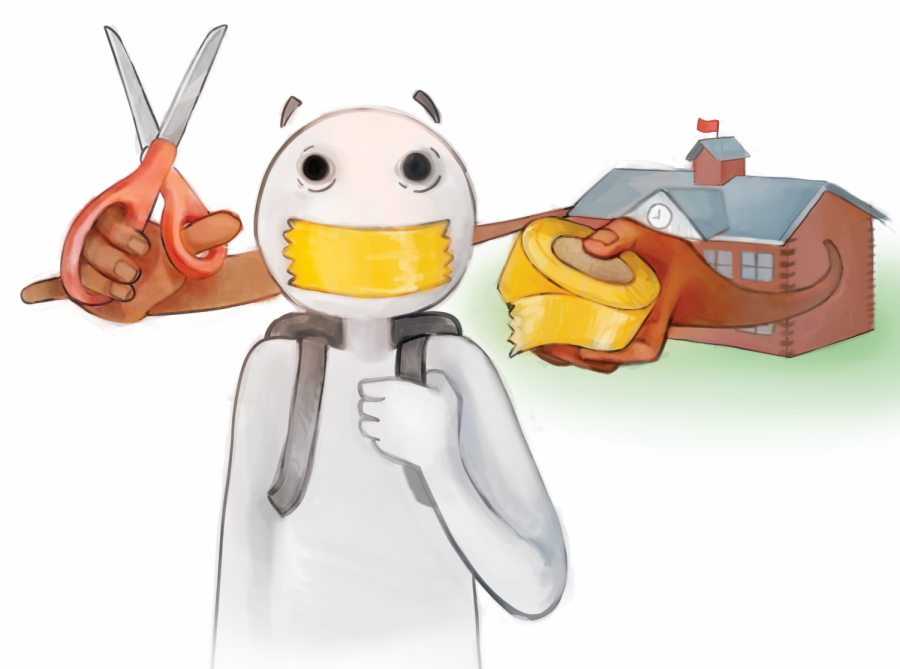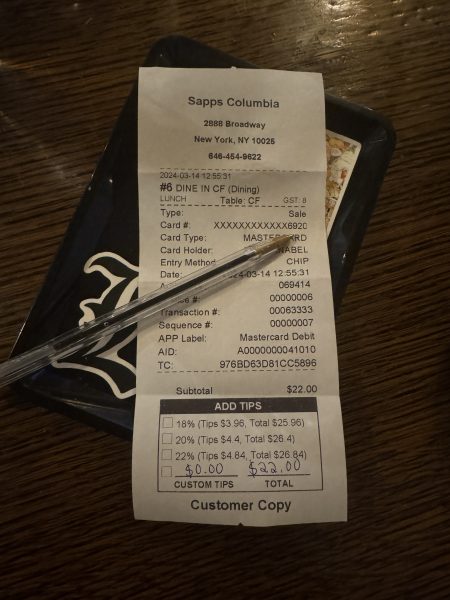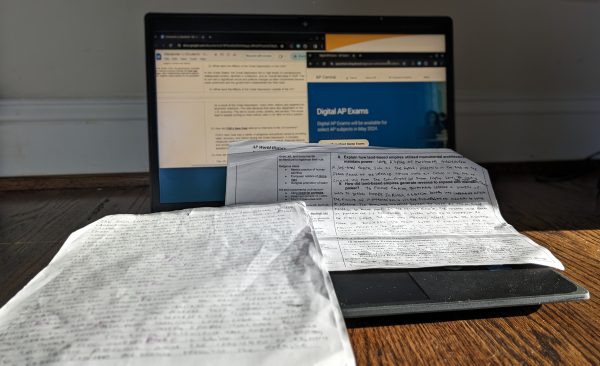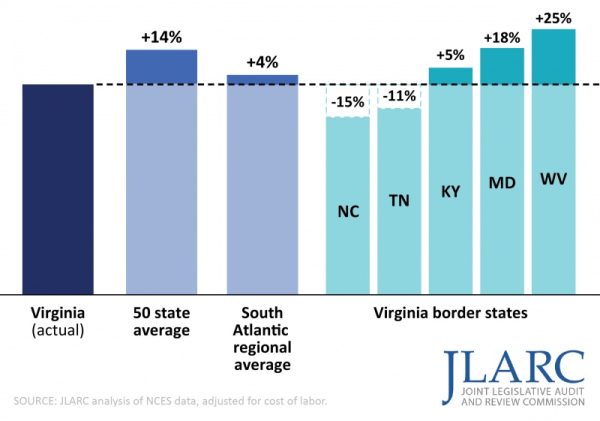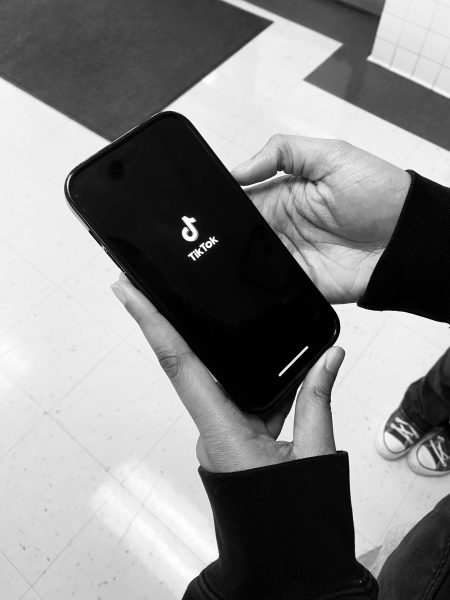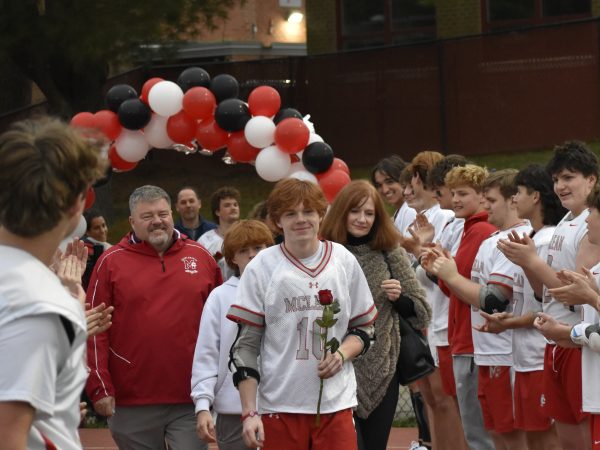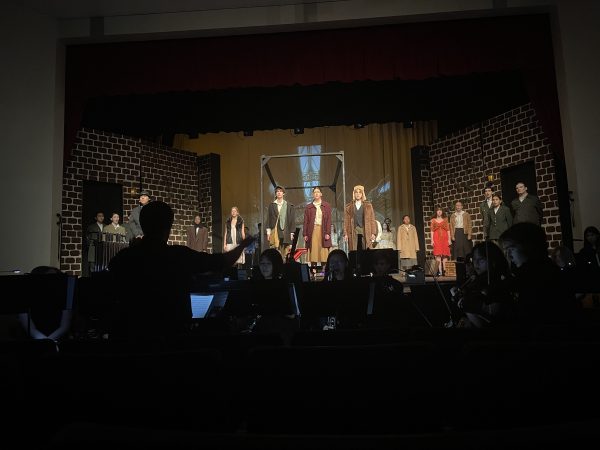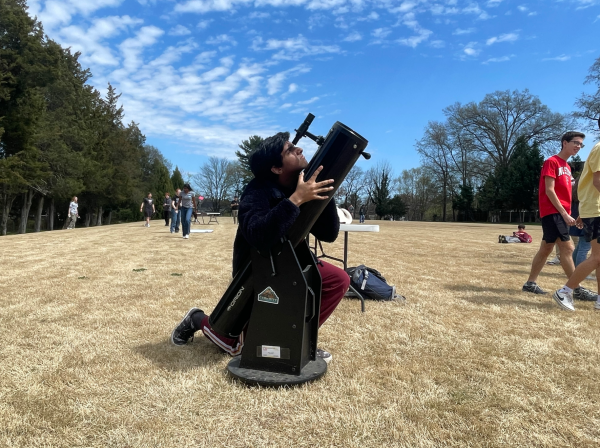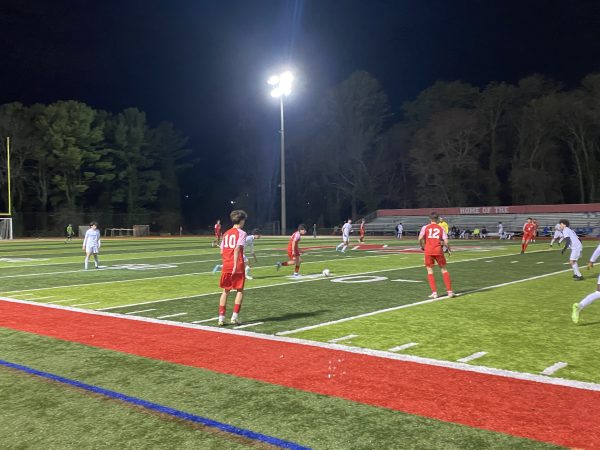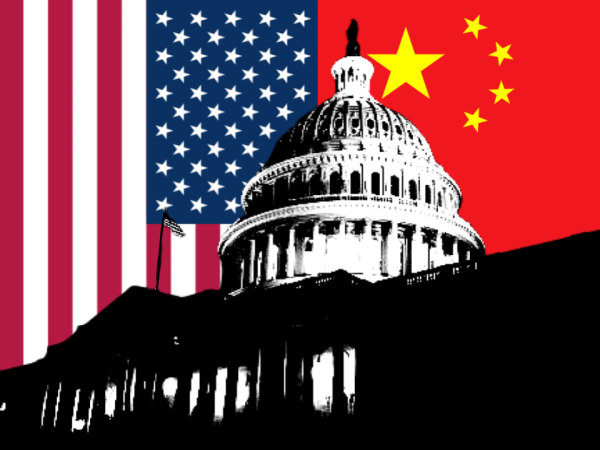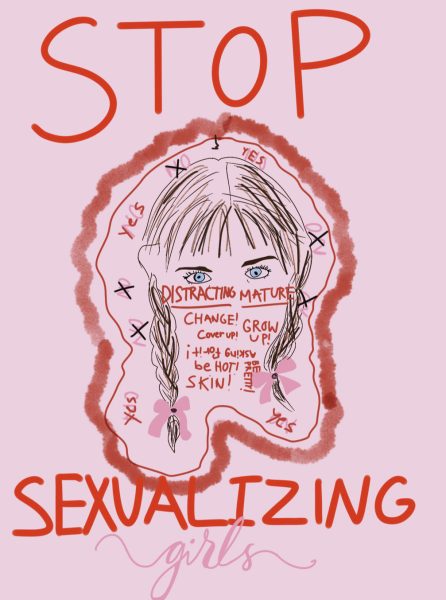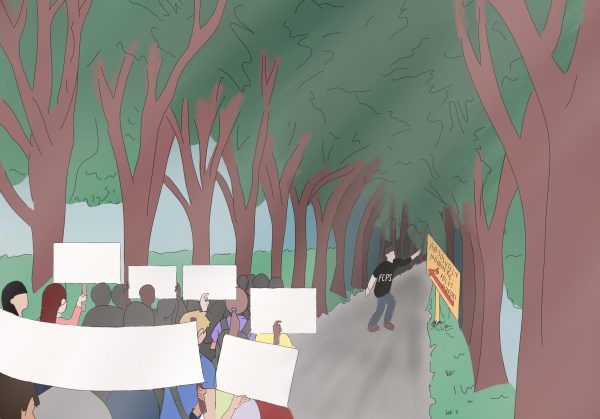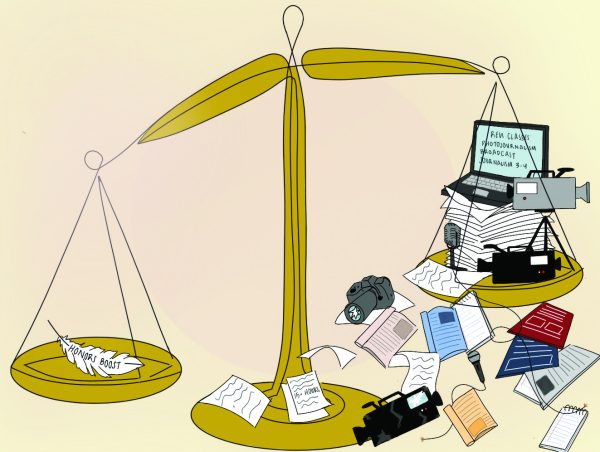Tinker 2.0: students’ rights need rescuing
Supreme Court should not infringe on students’ off-campus speech
The staff editorial represents the opinion of the majority of The Highlander editorial board.
At some point during most students’ time in high school, frustration bubbles to the surface, and today’s teens often turn to social media to share their thoughts and feelings. For student-athlete Brandi Levy, a simple Snapchat story has brought her all the way to the Supreme Court.
Today, this case could determine the new extent of students’ First Amendment rights and the jurisdiction that schools hold even off campus. Schools should respect the right to freedom of speech for students, especially off campus..
When Levy did not make her school’s varsity cheer squad in 2017, she expressed her anger through Snapchat, making the statement “F*** school f*** softball f*** cheer f*** everything” at a local convenience store after school hours. After her cheer coach saw the Snap, her school, Mahanoy Area High School in Pennsylvania, suspended her from cheer for an entire year.
Levy’s parents filed a lawsuit against the school district and won, which appealed the decision and petitioned for the Supreme Court to take on the case. The hearing will take place on April 28 with a decision expected to come around June.
“It will finally, belatedly, address the question that has been open for a very long time—whether schools can treat all students’ speech like it is on-campus speech, just because it has the possibility of causing a reaction,” said Frank LoMonte, professor of media law at the University of Florida and former director of the Student Press Law Center, in an interview with The Highlander.
This is not the first time students’ rights have been restricted by schools. In 1965, three students were suspended for wearing black arm bands to school to express opposition against the Vietnam War. In Tinker v. Des Moines Independent Community School District, the Supreme Court ruled in favor of the students, stating that schools would need to prove that students’ speech would cause a substantial disruption to the school in order to justify censoring them.
“It really is going to be the Tinker case of its day,” LoMonte said. “Maybe it didn’t seem all that significant at the time, whether somebody could [protest at] school or not, but it has set the standard for every other case that has come after it for half a century.”
Today’s Supreme Court must acknowledge the significance of the Tinker case and continue to uphold students’ rights both on and off campus in order to maintain a safe learning environment for all students.
A decision against Levy could lead to the chilling effect, a term often used in courtrooms and legal settings. The chilling effect is when people are silenced, not even attempting to speak up, as a result of fear of being punished.
“My concern is that if Brandi Levy loses this case and the school district wins, we will see students being punished just for acts of off-campus whistleblowing or activism,” LoMonte said. “I think the chilling effect of a loss for Brandi Levy would be profound, and it would be felt in every public school in America and at the college level too.”
LoMonte is concerned that if this level of control is extended to higher education, as typically happens with Supreme Court school speech cases, it will have an even greater impact on college-aged students’ futures. Current high school and even elementary students should be just as concerned—the results of B.L. v. Mahanoy Area School District could have long-lasting effects if students are deprived of the right to speak their minds about issues that concern them.
Some argue that if schools do not discipline students for inappropriate or violent off-campus speech, bullying and harassment could go unpunished by schools. If off-campus speech is severe enough to disrupt learning at school, it is likely severe enough to be considered unprotected speech, and if schools are really concerned about bullying, they should focus on making safe spaces instead of trying to regulate every student’s words off campus.
Given the significance of this case and the impact it will have on the future of students’ rights both on and off school grounds, the Supreme Court needs to uphold students’ basic First Amendment right to freedom of speech.
“This [case] is another test of bravery for the justices,” LoMonte said. “It’s another test of are they going to…treat students as if they’re all monsters and maniacs who are going to use the internet to destroy each other, or are they going to look past stereotypes and recognize that students use their voices in all kinds of socially, politically and artistically valuable ways?”
We, the editorial board of The Highlander, are proud to be students at a school that has earned the Journalism Education Association’s First Amendment Press Freedom Award five times, and we see how this freedom has empowered us to speak out in the face of injustice—this is why we must raise our voices in support of Brandi Levy and all students at risk of being silenced.
Your donation supports the McLean High School's independent, award-winning news publication.



